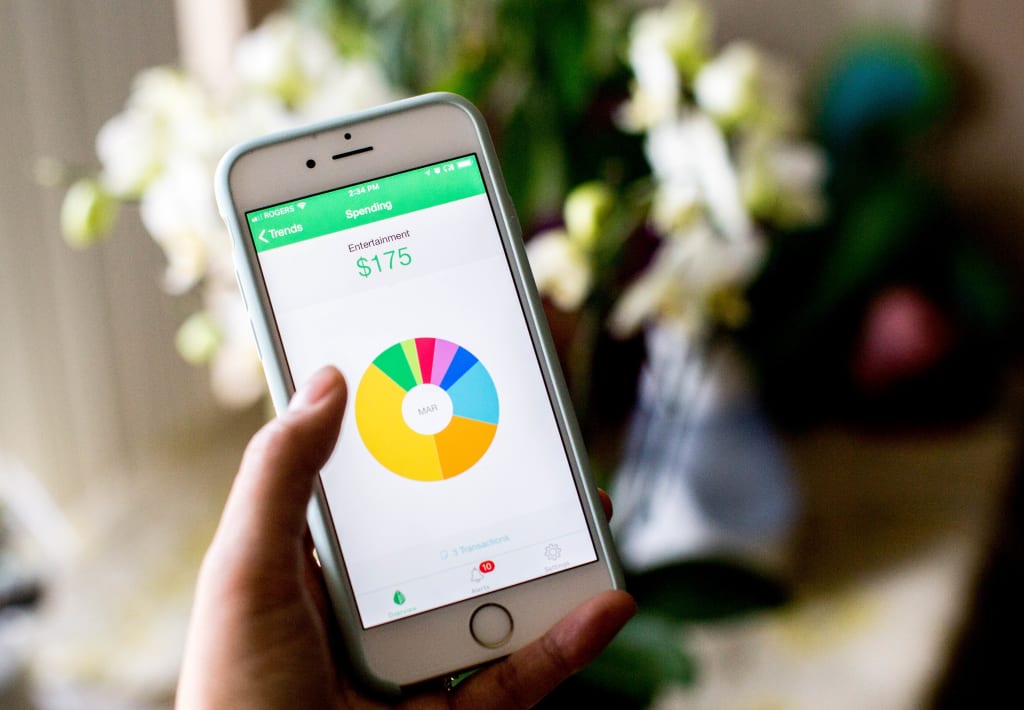10 Savings Apps You Need to Know About
So you want to save extra cash before the next recession hits, eh? These savings apps can help.

I remember the last time my car broke down. I was living paycheck to paycheck, and the ball joint of my Mitsubishi Lancer had snapped. It cost around $900 cash to fix. Had my mother not bailed me out, I'd have been out of luck and out of a job.
It was then I learned the importance of having emergency savings. Having around $1,000 in emergency savings is considered to be a must for people who want to remain financially stable.
The problem I have is that it often ends up being really difficult to set aside money in a savings account. Thankfully, we live in an age where this isn't really a problem. Tech can do it all for us!
When I found out about savings apps, I was thrilled. Though there aren't many out there, those that are out there definitely can work wonders. Here are some of the best ones on the market.
Qapital is one of the most well-known savings apps on the market, and it's easy to see why. It's been around the longest, allows you to choose how you save your money, and also gives you a nifty debit card you can use to spend money you save up seconds after it hits your spending account.
The Good:
This is one of the better apps out there for people who have a hard time saving, and would rather automate their plans. Transfers to Qapital take around 2 to 3 hours.
They also recently unveiled an automated investment service. This allows you to invest without knowing much about the stock market, and yes, it's automated too.
The Bad:
That being said, this has a tendency of overdrafting your account due to sluggish checkups on your main account. I'm not a fan of that, and it's cost me more money than I've saved in recent months.
Personally, I've had issues using the Qapital debit card. However, most people have had better experiences with this app than I have—and that's something I can't deny.
Acorns started out as a micro-investing app with a built-in roboadvisor, and is now one of the best apps for micro-investing out there. The idea behind it was that it'd allow you to invest your spare change through roundups. By investing spare change, you save up tons of cash without actually noticing it.
The Good:
Acorns is pretty good when it comes to investment returns and safety. The app also works to educate users on investing, the stock market, and more.
They recently unveiled their own debit card, so you can spend savings you have sooner rather than later—and that also means you won't have to wait too long to access money.
They're also pretty decent when it comes to keeping an eye on your donor bank account. They will be far less likely to overdraft you as a result.
The Bad:
The returns could be better, and fees are kind of high. It's not a bad service though, all things considered.
Stash is Acorns's biggest competitor, and like Acorns, it started as an investment app for beginners that grew into one of the best apps for first-time investors. The difference is that Stash uses partial shares ownership and allows people to invest as little as $5 per investment. Lately, Stash has released its own debit card for users to enjoy—which makes it one of the newest savings apps out there.
The Good:
Stash educates people about the market, gets you interested in investing, and allows you to save up money via automated weekly transfers. It allows you to invest in both ETFs and regular stocks, and also works as a regular bank for cash savings, too.
Investment returns, for me, have been great with Stash. This is true with their Roth IRA accounts and their regular investment account. I'm in love.
The Bad:
Fees are high and could eat into returns, but if you don't invest, you just have a nice little bank account with great support.
Digit is one of the most well-known savings apps on the market, and it's because it works to find new ways you can save money through analyzing every transaction you make. It then makes small withdrawals from your bank account so you won't notice the money missing.
The Good:
Digit works as both a budget planner and a savings app, and truth be told, you can save a lot of money through it. You also can get a good reality check about where your money is going—if you need one, anyway.
Digit can save up to as much as $50 at a time, all depending on your spending habits and balance. That's not too shabby, and those numbers can add up really quickly.
You also get a monthly savings bonus based on how much money you have in Digit's bank. Did we mention it has a "no overdraft" guarantee?
The Bad:
It costs a monthly fee to maintain. Counterintuitive, much? Thankfully, Digit can pay for itself with the bonuses. That being said, they also don't have a debit card, so accessing money can be difficult.
Chime is a app-based bank that has a serious bent on saving money. Like Acorns, it rounds up your transactions every time you buy something—if you so choose. It also allows you to save up 10 percent of your paycheck from every payday.
The Good:
The banking experience with Chime is superb, and the way Chime saves you money means that you'll be seeing money add up really quickly. This app also gives you a nice little interest rate.
That being said, it's still in the works and more features will be added as time passes. It's still relatively new, but it has a debit card, so that's a plus.
The Bad:
Less time on the market means that the jury is still out on this one. There's not much fluidity and "bend" when it comes to how you choose to save. Getting money out of the account isn't easy, either.
Are you not quite ready to save, but still want to find out where your money is going? You might want to get a little Clarity into your life. This app doesn't actually save your money for you, but it does show you where it goes.
The Good:
This app is amazingly good at calculating savings and helping people get the most of their cash. Like, it's so good, you might actually start rethinking your life choices from its data.
The Bad:
As the old saying goes, "You can lead a horse to water, but you can't make it drink." You will still need to be the person who's in charge of your savings account.
Long Game is one of the very few savings apps that is all about catering to vices—sort of. This savings app acts like a lottery. The more you save, the more chances you get to win a prize. They call it "prize-linked savings."
The Good:
You don't have your savings principle played with, and you're saving money you would have spent on lotto tickets. You might even win a prize, too!
The Bad:
Bro, do you really need to have to play a game to save? What's up with you!?
Mint is one of the oldest budgeting apps on the market, and was famous for helping people get their budgets together in a seamless, stylish, and easy to read way. Like other apps of its kind, it won't save for you—but it will give you a roadmap to financial success.
The Good:
Mint is really good at showing you where your weak points are, and links up with every account you have. No other app is as detailed or as educational as Mint—at least in terms of budgeting education.
As long as you are willing to follow the app's advice and stick with the plan, you will be golden.
The Bad:
It won't save for you, nor does it have investment opportunities. Oh well...
Billshark isn't a traditional savings program, nor could it be considered a budgeting app, but that doesn't mean it won't help you save. This app allows you to trim your reoccurring bills—which in turn, frees up money that you otherwise wouldn't have.
The Good:
You get to save bookoo bucks on things like your phone, cable, and sometimes even credit card bills. Even if you're not looking for ways to save an emergency fund on a budget, that's something we can all enjoy.
The Bad:
Once again, this is not a savings account app, nor will it automatically invest for you. So, if you are looking to free up money, it'll do well for you. If you want it to save for you, then it will be a bit different.
Finally, let's end this list of savings apps with one of the only real savings account apps for couples—Twine. This app gives you a joint savings account that you and your partner can use to attain goals that you both want to reach.
The Good:
It's a great joint savings program for couples who want to save up for a wedding, a new home, or even just a vacation in Vegas. It automatically deducts your monthly amount, and also lets you invest your savings in specially formulated portfolios.
The Bad:
If you have a partner that doesn't save, or a partner that can't stop spending, it'll be useless.
About the Creator
Iggy Paulsen
Iggy Paulsen is a fan of anything and everything wholesome. He loves his two dogs, hiking in the woods, traveling to Aruba, building DIY projects that better humanity, and listening to motivational speakers. He hopes to eventually become a motivational speaker himself.






Comments
There are no comments for this story
Be the first to respond and start the conversation.